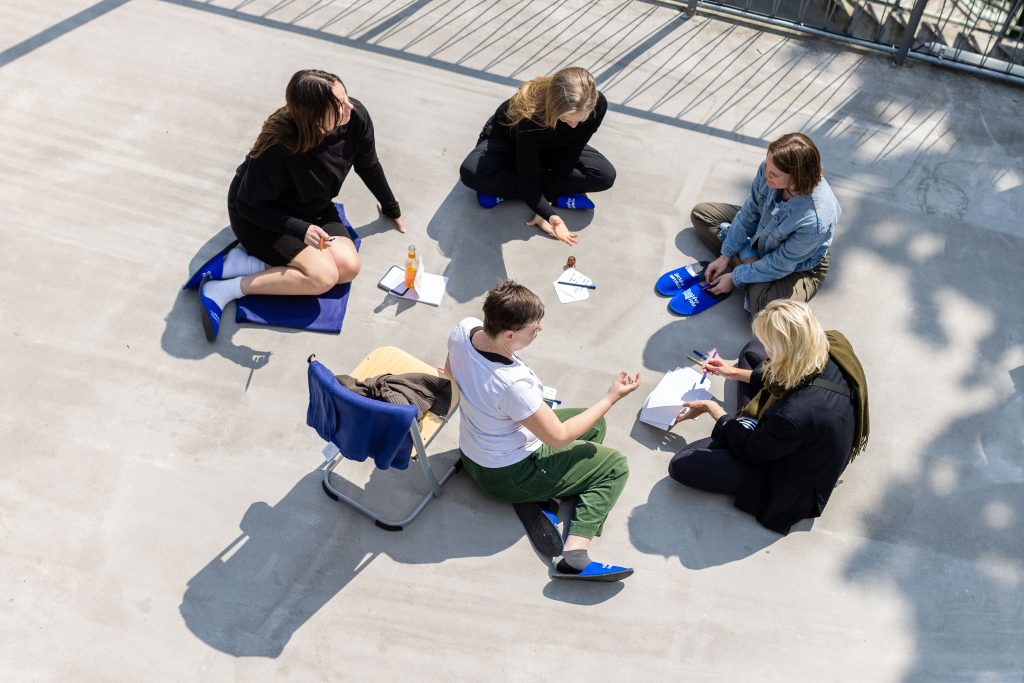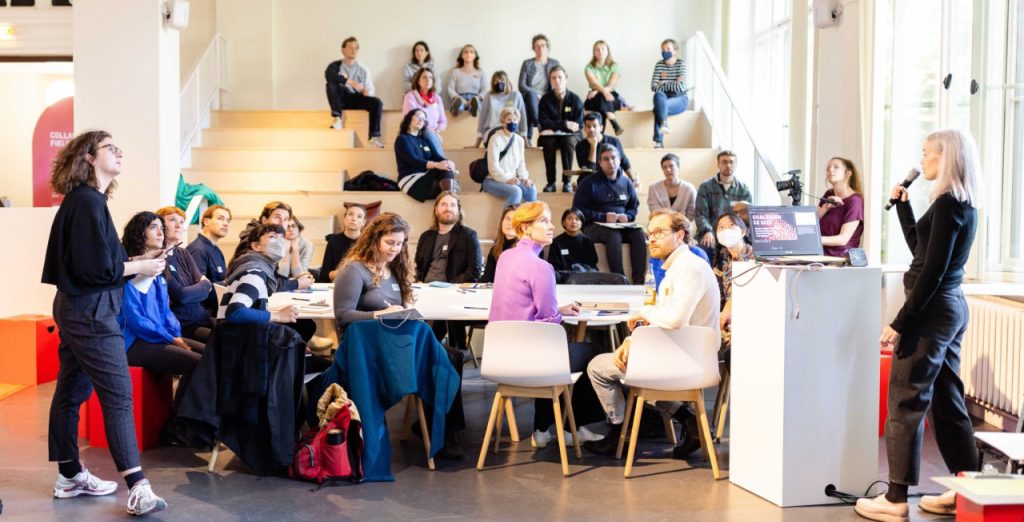
CollActive Materials brings people from the scientific realm and civil society together in workshops and exhibitions in order to engage in co-speculation: Could the future be grasped differently?
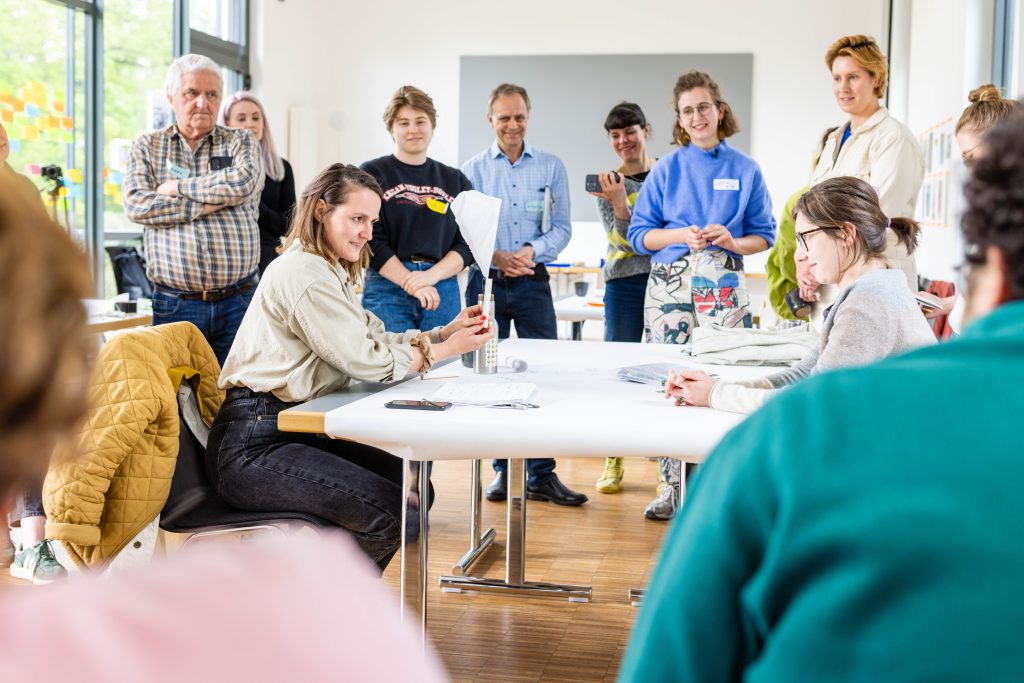
CollActive Materials is guided by its belief that a number of current research challenges need to be brought into a direct exchange with expertise from civil society – in particular challenges relating to materials and their future uses. We see co-speculation as a technique that inspires such encounters in novel ways.
The project is conceived as a way to utilize co-designing with diverse groups in the public realm in order to make an active contribution to the evolving field of science communication, public engagement, and knowledge exchange. At the same time, our work is aimed at the scholarly and scientific communities – from the humanities to design research and the engineering sciences, whereby our goal is to make our approach of collaborative speculation available to transdisciplinary research.
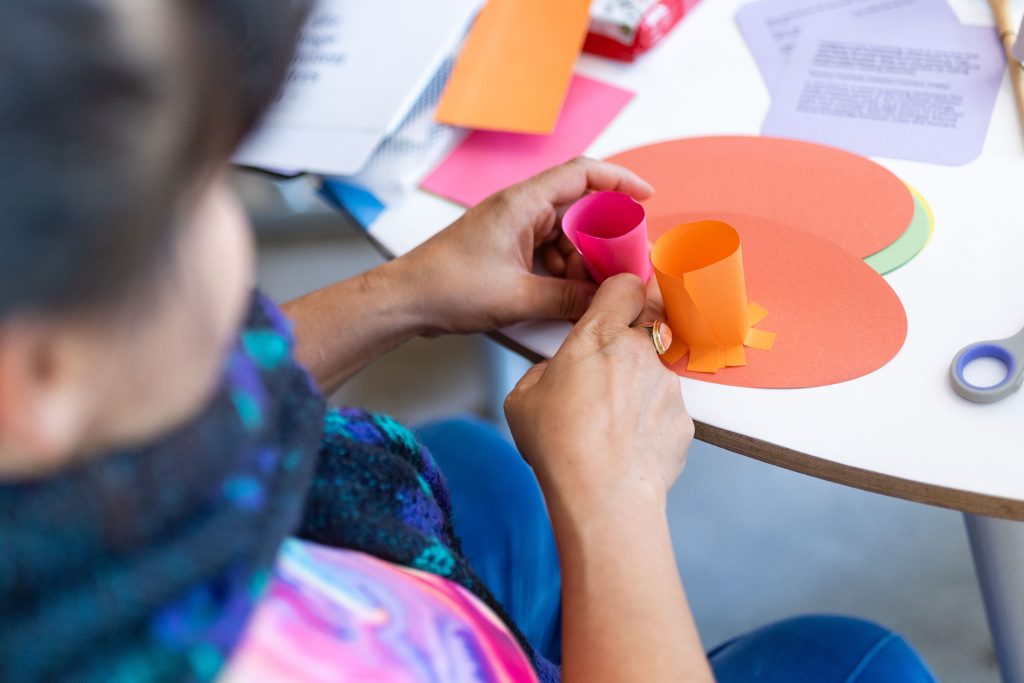
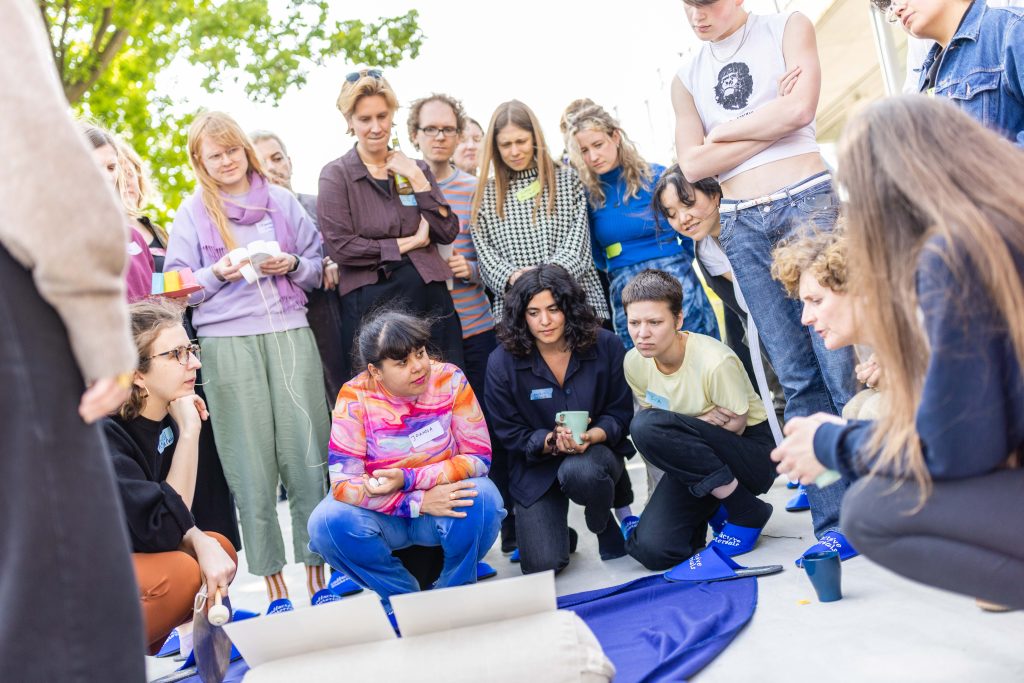
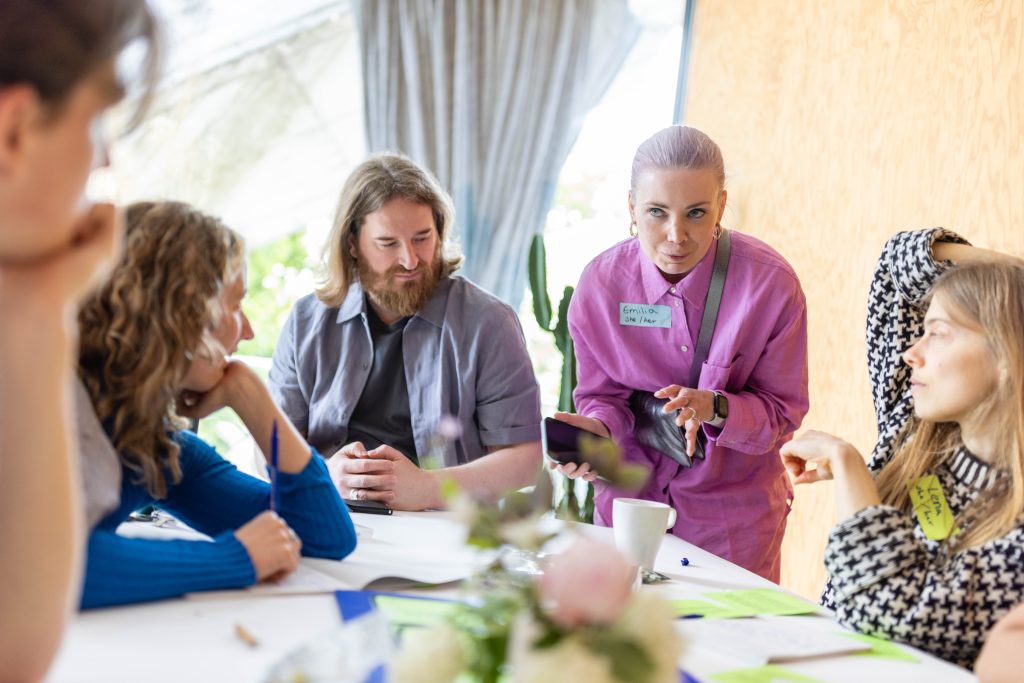
Photos: © SCIoI
